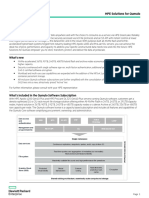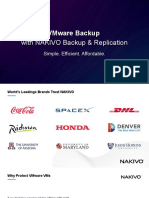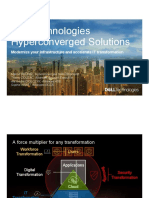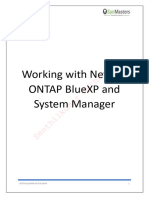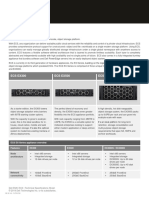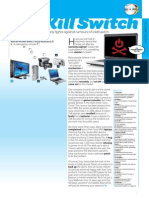0% found this document useful (0 votes)
115 views32 pagesUnstructured Data in The Cloud With ECS: Mikhail Vladimirov Senior Sales Engineer
The document discusses unstructured data storage in the cloud with Dell EMC Elastic Cloud Storage (ECS). It defines what an archive is and compares it to backups. It outlines trends in archiving, including more sources of data, increased value of analytics on archived data, and archives moving to object clouds. The document presents ECS as a solution that supports these trends by providing a modern hyper-scale cloud architecture that can scale from petabytes to exabytes and access archived data from various sources globally. ECS also enables in-place data analytics on cost-effective storage.
Uploaded by
Kaveh VatankhahCopyright
© © All Rights Reserved
We take content rights seriously. If you suspect this is your content, claim it here.
Available Formats
Download as PDF, TXT or read online on Scribd
0% found this document useful (0 votes)
115 views32 pagesUnstructured Data in The Cloud With ECS: Mikhail Vladimirov Senior Sales Engineer
The document discusses unstructured data storage in the cloud with Dell EMC Elastic Cloud Storage (ECS). It defines what an archive is and compares it to backups. It outlines trends in archiving, including more sources of data, increased value of analytics on archived data, and archives moving to object clouds. The document presents ECS as a solution that supports these trends by providing a modern hyper-scale cloud architecture that can scale from petabytes to exabytes and access archived data from various sources globally. ECS also enables in-place data analytics on cost-effective storage.
Uploaded by
Kaveh VatankhahCopyright
© © All Rights Reserved
We take content rights seriously. If you suspect this is your content, claim it here.
Available Formats
Download as PDF, TXT or read online on Scribd
/ 32




